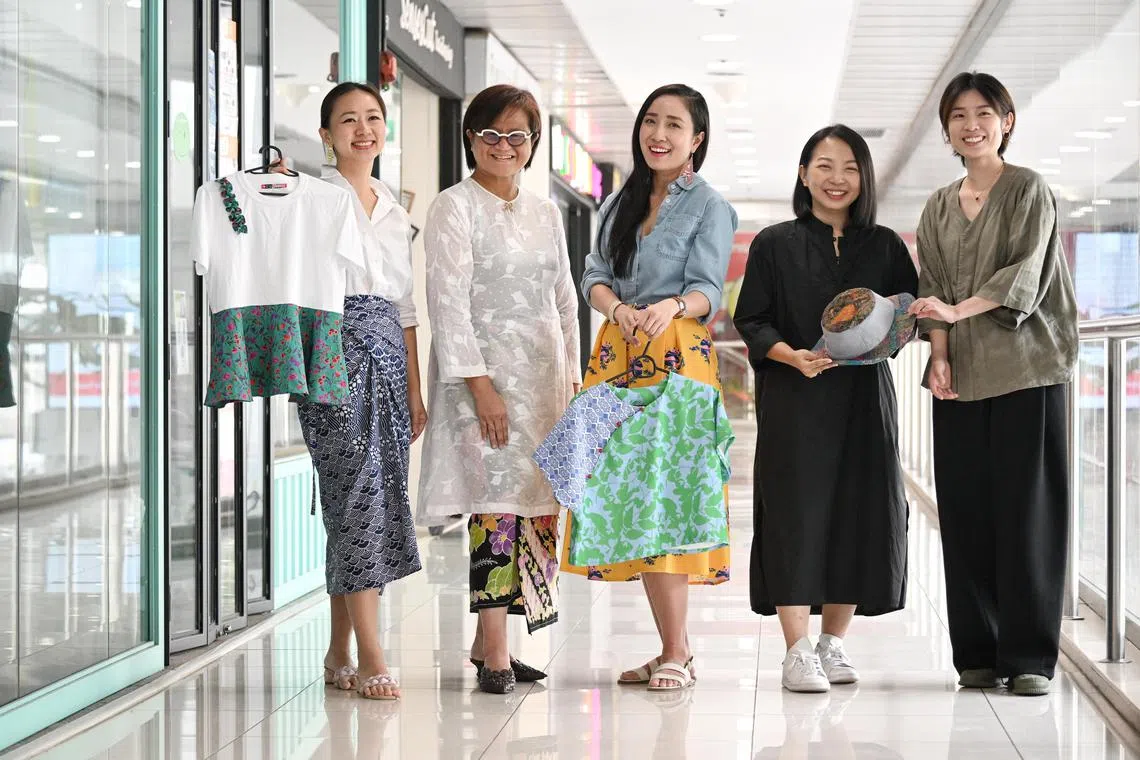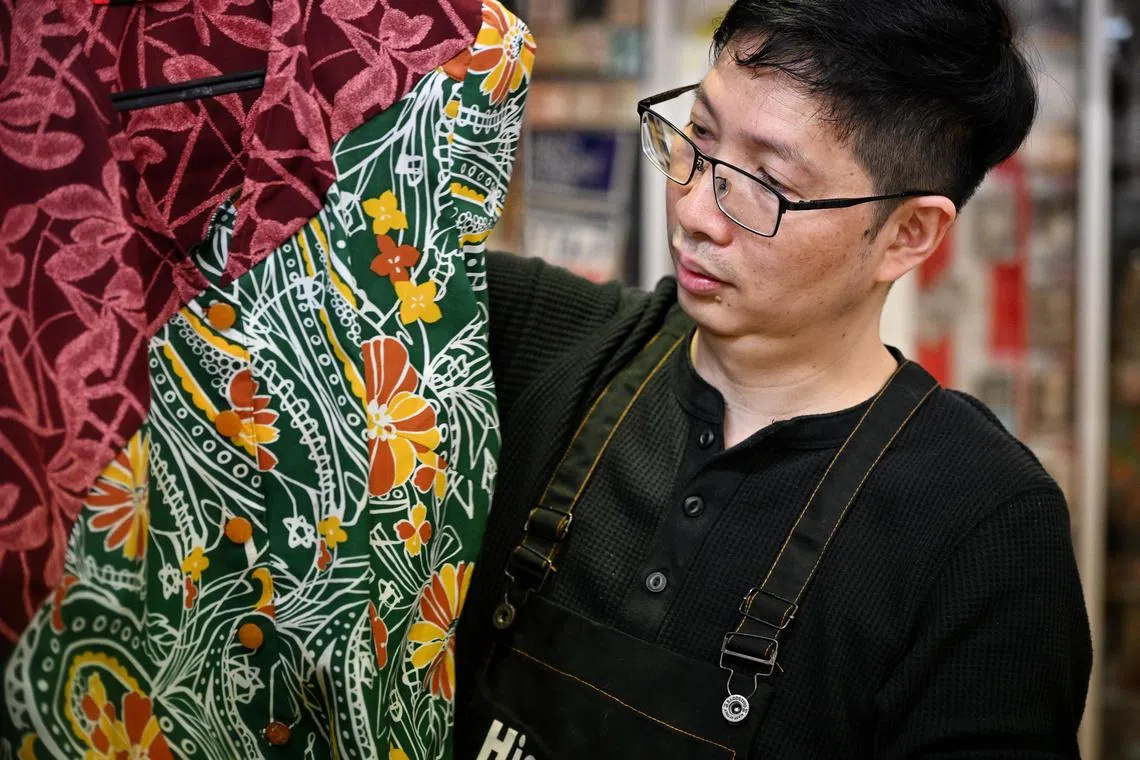Local designers give blueprints to turn old clothes into bespoke designer pieces
Sign up now: Get ST's newsletters delivered to your inbox

Founder of Lark and Peony Junie Yeo hopped on board Recustom because she was drawn to its sustainability goals.
ST PHOTO: KUA CHEE SIONG
Follow topic:
SINGAPORE - Seven home-grown fashion labels have come together in a new initiative to provide free blueprints for people to turn their old clothes into new designer pieces.
Called Recustom, the sustainability project seeks to support local tailors and encourage people to repurpose old clothes instead of throwing them away.
The blueprints for the 15 designs – ranging from contemporary street looks to ethnic wear for both men and women – include instructions for tailors to construct each look, along with the type and quantity of pre-loved clothes needed to create it.
Depression, Graye, Sabrinagoh, Ans.ein, Baebeeboo, Lark and Peony, and Kebaya by Ratianah are the fashion labels that have created the looks for the project.
The blueprints can be downloaded from Recustom’s website
Graye’s creative director, Ms Xie QianQian, provided the blueprint for the Shoto Baseball Collar Top, which has an adjustable buckle. She suggested using different striped shirts to make this.
Ms Sabrina Goh, founder of her eponymous label, designed the Goen Bucket Hat, which can be made with multiple pieces of fabric of different materials.
The idea for the initiative came from creative agency Tribal Worldwide Singapore, which brought on board the fashion designers and the National Heritage Board (NHB).
Tribal’s executive creative director, Mr Benson Toh, said one of the goals of Recustom is to “rejuvenate old trades such as those of tailors and craftspeople of ethnic wear by making them exciting and relevant to youth”.
NHB recommended modern cheongsam label Lark and Peony and Kebaya by Ratianah to be a part of this initiative, to spotlight their craft practices and interpretation of these traditional garments.
Lark and Peony founder Junie Yeo created the Yan Top, a blouse featuring a boxy, cropped silhouette, and the Pankou Button Shirt, inspired by the traditional knotted buttons used on qipao or cheongsam.
Kebaya maker Ratianah Tahir designed the Baju Kurung Pesak, which has a traditional collarless round neckline called teluk belanga.
She suggested using material from old batik shirts, kebayas, baju kurungs or even denim from jeans to create a modern, unconventional patchwork design.
NHB worked with Tribal to highlight the heritage significance of the garments on the Recustom website.
An NHB spokesperson said: “Through Recustom, we hope to grow a greater appreciation and understanding of ethnic wear among youth by showing them that cultural garments with deep-seated roots and rich tradition can be just as relevant and fashionable.”
Ms Yeo, 43, said she was drawn to the project for its sustainability goal, to give old garments a new lease of life, as she hates wasting material.

Some of the designers who are part of the Recustom sustainability project (from left) Ms Anseina Eliza, co-founder and designer of Ans.ein; Ms Ratianah Tahir, owner of Kebaya by Ratianah; Ms Junie Yeo, founder of Lark and Peony; Ms Sabrina Goh, founder of Sabrinagoh; and Ms Xie QianQian, creative director of Graye. Some of them are holding tailor-made pieces of their own blueprints.
ST PHOTO: KUA CHEE SIONG
The opportunity it gives people to create a personalised outfit is another factor that convinced her to be a part of Recustom.
“With fast fashion, everyone dresses the same these days,” she said. “When you have something unique, it can be a conversation starter.”
Those who are keen to wear a bespoke fashion piece made from the blueprints but do not have the necessary tailoring skills can go to a tailor.
There are about 30 tailors who are part of the project – they are listed on the website.
One such tailor is Mr Alan Chen, 44, who owns Hing Show Tailor in Far East Plaza.

Owner of Hing Show Tailor Alan Chen, who has about 20 years’ experience in the trade, hopes to get more young people to see tailoring as a craft.
ST PHOTO: KUA CHEE SIONG
For the Recustom designs, Mr Chen’s tailoring costs start from about $30 for the bucket hat and $50 for a shirt that uses two types of material.
Tribal’s Mr Toh said that prices will vary for each tailor-made piece, depending on each tailor.
Mr Chen, who has about 20 years’ experience in the trade, said he was keen to be part of the project as he wants more youth to understand that tailoring is a craft.
He said: “Recustom will allow me to showcase my tailoring skills, and customers can see the value of the trade.”
Correction note: In an earlier version of the story, one designer’s brand was named as Graye Studio. It should be Graye. We are sorry for the error.


